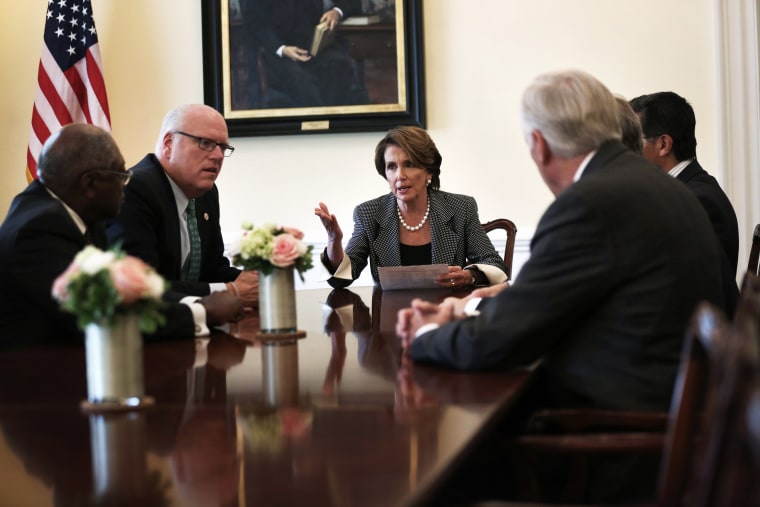It's done.
Senate Democratic and Republican leaders on Wednesday reached final agreement on a deal to reopen the government and extend its borrowing authority into February, with votes in the House and the Senate possibly to begin in the afternoon, according to aides familiar with the negotiations. [...] A Democratic leader said the current plan was for the Senate to provide the legislative language to the House, get a House vote, and then have the Senate take up the bill, pass it, and perhaps send it to President Obama before the end of the day.
The order of which chamber goes first may yet change, but the road ahead is no longer in doubt. There were some lingering concerns about whether Sen. Ted Cruz (R-Texas) or other right-wing senators might deliberately delay the vote until after the debt-ceiling deadline, but he and others told reporters this morning that they don't see the point. Far-right senators could needlessly push off voting on the bill, but they wouldn't have the votes to defeat it.
All that stuff Cruz said about "standing firm" and "staying strong," no matter the odds? That was before, and it's no longer operable.
As for the House, Speaker John Boehner (R-Ohio), officially out of options, has agreed to bring the bipartisan Senate package to the floor, where it's expected to pass with largely Democratic support. It will still need the support of no fewer than 17 House Republicans, but that's not expected to be a problem.
As for what's in the agreement, the contours are very much in line with what we discussed earlier -- the shutdown will end; the government will be funded through Jan. 15, the debt ceiling will be raised through Feb. 7, and broader budget negotiations will begin with the goal of having a framework in place by Dec. 13.
Democrats will pay no ransom, as part of their larger goal of reestablishing American political norms.
As the process continues to unfold, it's important to realize that Republicans could have had this exact same resolution several weeks ago. In other words, the crises that rocked Washington and frightened the world were launched for no reason. The Republican Party has absolutely nothing to show for their efforts, except a collapse in public support -- which will not only hurt GOP candidates next year, but as Ken Cuccinelli can attest, is already hurting GOP candidates this year.
In theory, Republicans may try this stunt all over again in a few months, threatening another shutdown in January and another debt-ceiling crisis in February, though it's tempting to think even GOP lawmakers would be reluctant to shoot themselves in the foot again so quickly.
